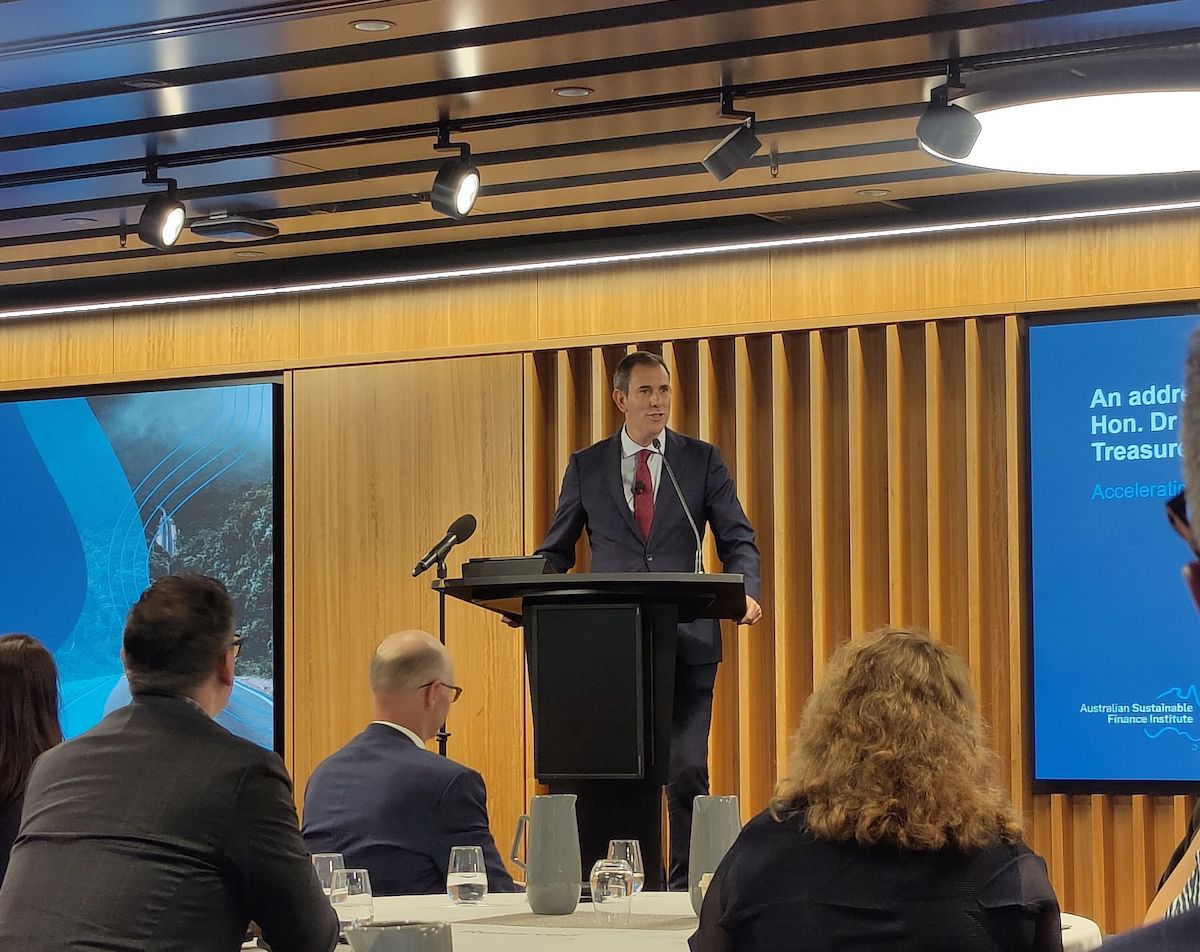The Treasurer spent some of his summer holidays penning a long-form essay that, among other things, described his concept of how ‘values-based capitalism’ could look in Australia.
Titled ‘Capitalism after the crisis’ it maps out the economic challenges of the past, and how inaction, at many levels, has left us vulnerable to an even worse crisis.
Jim Chalmers chose to publish it in the decidedly left-leaning, progressive publication The Monthly, which is the first signal of the tone of the piece.
He came out of the blocks swinging, drawing a ‘symmetry’ between the Black Saturday fires and the global financial crisis. The fires were unprecedented in their ferocity, firefighters and disaster crews didn’t think such pace and impact was possible, and this forced a major overhaul of bushfire safety policies.
And while the GFC had wreaked a similarly catastrophic wave of destruction across global markets and border economies, there was no similar set of changes to economic management.
The lessons weren’t learned, the status quo was allowed to continue, and now we’re once more being forced to weather the consequences.
Chalmers cites John Maynard Keynes, he laments the stagnation of economic thought and imagination and he invokes the very progressive ideas of Mariana Mazzucato as he begins to outline his vision of values-based capitalism.
“It’s clear now that the problem wasn’t so much more markets as poorly designed ones. Carefully constructed markets are a positive and powerful tool. As the influential economist Mariana Mazzucato has explored in her work, markets built in partnership through the efforts of business, labour and government are still the best mechanism we have to efficiently and effectively direct resources. But these considered and efficient markets were not what the old model delivered. And while the 2008 crisis finally exposed the illegitimacy of this approach, no fresh consensus has yet taken its place.” Chalmers says.
In a prelude to discussing ‘impact investing’ he begins by invoking the hard work of Michael Traill, alongside UK sustainable investing hero Mark Carney. He then breaks down a three point plan for positive change.
“One frustration for Traill and Carney is that a narrow definition of a successful economy is so obviously self-defeating even in its own limited terms. By failing to put values at the forefront of how our economies work, we also leave behind reams of wasted talent, a degraded environment and social dislocation – all of which threaten to diminish the productive capacity of our economies and ability to create “value” in the first place.” Chalmers writes.
“This relies on at least three objectives. First, an orderly energy and climate transition, with implications for living costs, employment, where and how we live, the commercialisation of technology, and the trajectory of our economic development. This means introducing cleaner, cheaper, more reliable and increasingly renewable energy, and adopting practices and technologies that limit our emissions. All while creating new industries, empowering workers and regions, and leveraging our traditional strengths.”
“Second, a more resilient and adaptable economy in the face of climate, geopolitical and cyber risks, unreliable supply chains, and pressures on budgets from an ageing population.”
“Third, growth that puts equality and equal opportunity at the centre. This is not only fair, it’s good economic policy. As an example, gender equality is not only desperately overdue in its own right, the failure to make meaningful progress remains one of the biggest handbrakes on our economic potential. This is wilful neglect, with economic and social consequences.”
There is some early hesitation to commit to language around ‘impact investing’, but towards the end of the piece he’s more explicit, committing to financial market reform through sustainable finance architecture. And he recognises the economic elegance that impact investing offers, through uniting the shared interests between the public and private sectors.
“So in 2023, we will create a new sustainable finance architecture, including a new taxonomy to label the climate impact of different investments. That will help investors align their choices with climate targets, help businesses who want to support the transition get finance more easily, and ensure regulators can stamp out greenwashing. This strategy begins with climate finance, but over time I see it expanding to incorporate nature-related risks and biodiversity goals.” Chalmers writes.
“We will try to expand the role for impact investing too. Across the social purpose economy, in areas such as aged care, education and disability, effective organisations with high-quality talent can offer decent returns and demonstrate a social dividend – but they find it hard to grow because they find it hard to get investors. Right now, the market framework that would enable that investment in effect doesn’t properly exist.”
It’s a dangerous game, for a politician to commit their opinions to a long-form essay on economic problems and a unique flavour of policy solutions. The politician is lifting their head above the parapet, they make a big target.
But for us, the public, it’s a welcome change. It offers an insight into how far back one of our leading politicians is thinking, and the solutions that they’re (hopefully) working to turn into viable policies today.
Now it’s a matter of turning talk into action.

